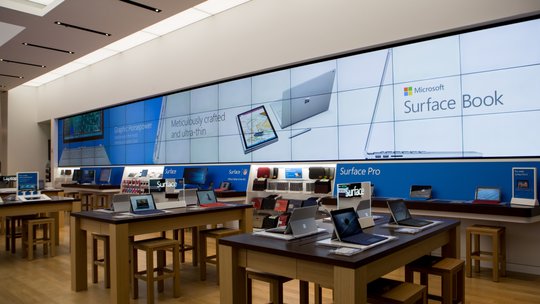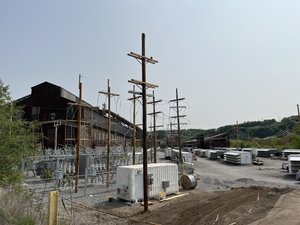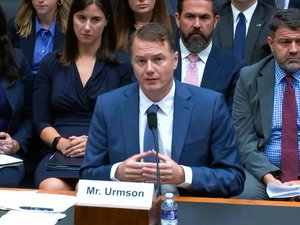
Microsoft Corp. recently announced it will purchase energy from Three Mile Island Unit 1 when it restarts in 2028 as part of a balancing act of meeting its public carbon neutral climate pledges with its increasing power demands as it expands and develops its artificial intelligence technology.
For Pennsylvania, the relaunch of the site of a partial nuclear meltdown is notable for obvious historical reasons, as well as the billions in tax revenue it will deliver and thousands of jobs it will create. But despite being over 200 miles away, this massive purchase will also effect Pittsburgh.
Microsoft announce Friday it had inked a 20-year power purchasing agreement with Constellation Energy Corp. (Nasdaq: CEG) for the energy from Unit 1, which has not operated since 2019 and is an independent facility from Unit 2, which suffered a partial meltdown in 1979. Constellation will invest resources into upgrading several components, including cooling systems and the main power transformer to prepare the unit to be online by 2028.
But in order to restart the reactor, Constellation will need approval and a safety and environmental review from the U.S. Nuclear Regulatory Commission, as well as state and local permits. Several state politicians, including Gov. Josh Shapiro, have expressed support for the plant's proposed reopening. Additionally, if approved, Constellation intends to submit a second application to the Nuclear Regulatory Commission to keep the plant operational through 2054, past the current 20-year deal window with Microsoft.
The Microsoft agreement will add 835 megawatts of power to the Pennsylvania-Maryland Interconnection power grid. The tech giant will draw that energy to power data centers across the region to keep pace with its goals of expanding artificial intelligence systems.
Microsoft's presence in the area is split between a corporate office and a research and development subdivision focused on artificial intelligence and machine learning. In a former Heinz condiment warehouse, the R&D division works directly with a high-performance data storage system known as Azure Managed Lustre. This high-performance computing system is based in part on Lustre, an open source file system developed over 20 years ago at Carnegie Mellon University. The system infrastructure itself stems from Avere, a local data storage company that Microsoft acquired in 2019.
Powering high-performance computing systems takes a lot of electricity. Despite pledging to be carbon neutral by 2030, construction, design and optimization of data centers to support AI workloads has led to Microsoft increasing emissions, not decreasing. The company acknowledged in May that emissions have grown by 29% and that "the infrastructure and electricity needed for these technologies create new challenges." Nuclear power, ultimately, presents the company with an opportunity to net large amounts of carbon free energy.
"This agreement is a major milestone in Microsoft's efforts to help carbonize the grid in support of our commitment to become carbon negative," Microsoft VP of Energy Bobby Hollis said in a prepared statement. "Microsoft continue to collaborate with energy providers to develop carbon-free energy sources to help meet the grids' capacity and reliability needs."
When asked for additional comment, a Microsoft spokesperson directed the Business Times to a blog post on sustainability.
Maintaining Pittsburgh's grid infrastructure has been a concern of policymakers as the city grows its AI sector. Speaking at a symposium on artificial intelligence in health care last month, former Allegheny County Executive Rich Fitzgerald cautioned that the Pittsburgh area would require improved infrastructure to match energy demand.
"We need to make sure that we have a grid system that can provide the infrastructure for our region's continued growth," Fitzgerald said.









